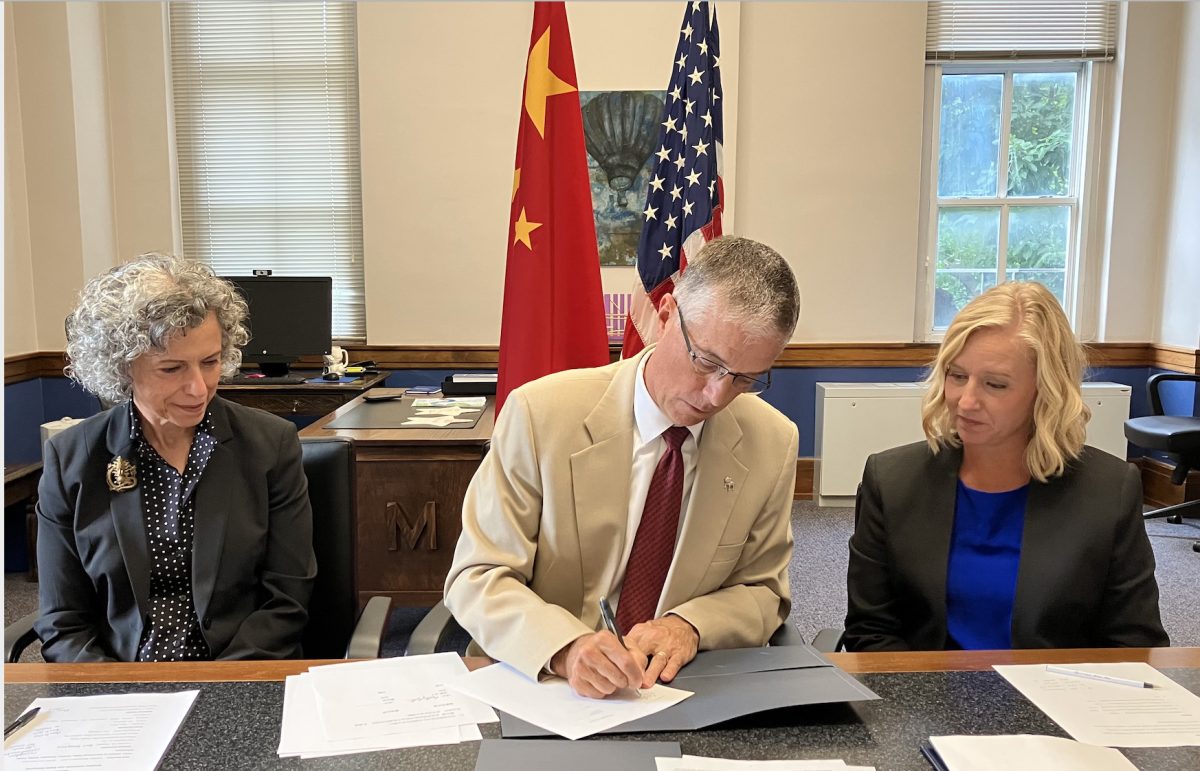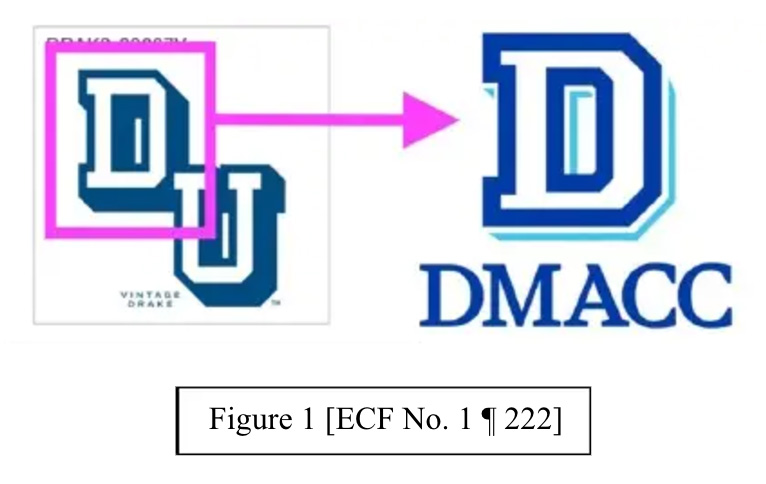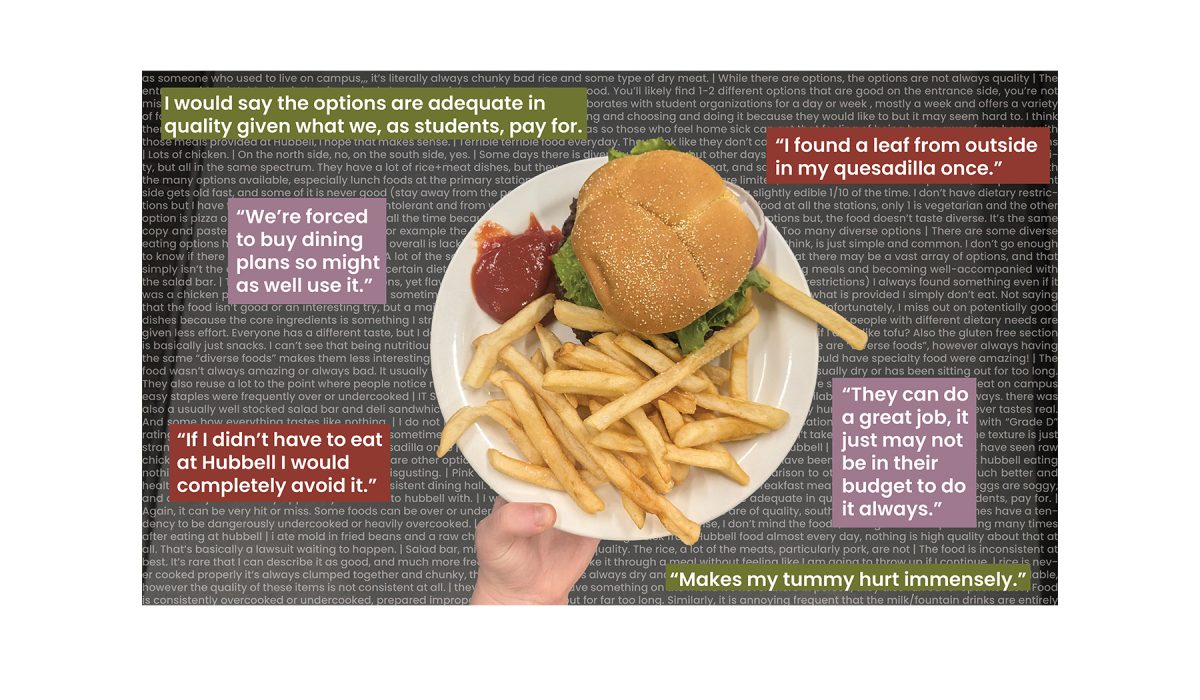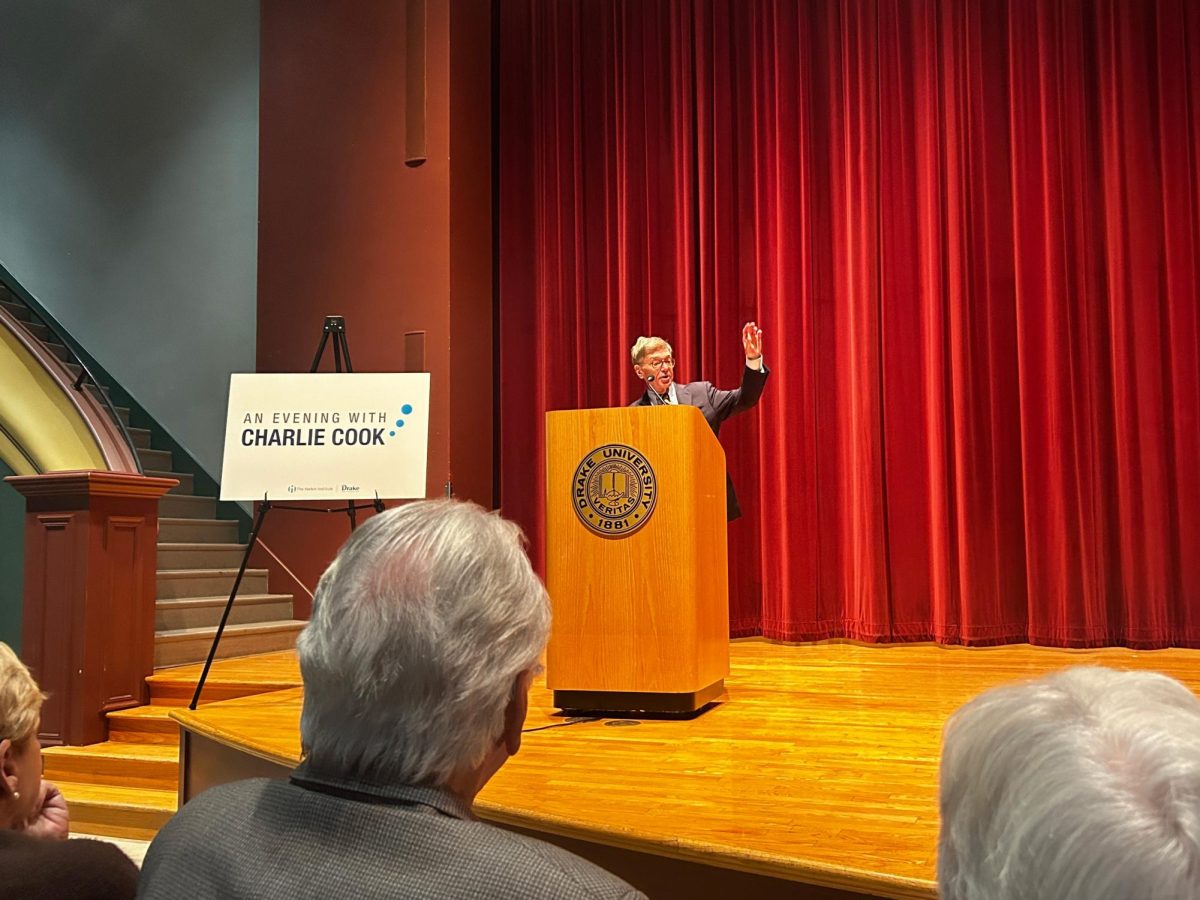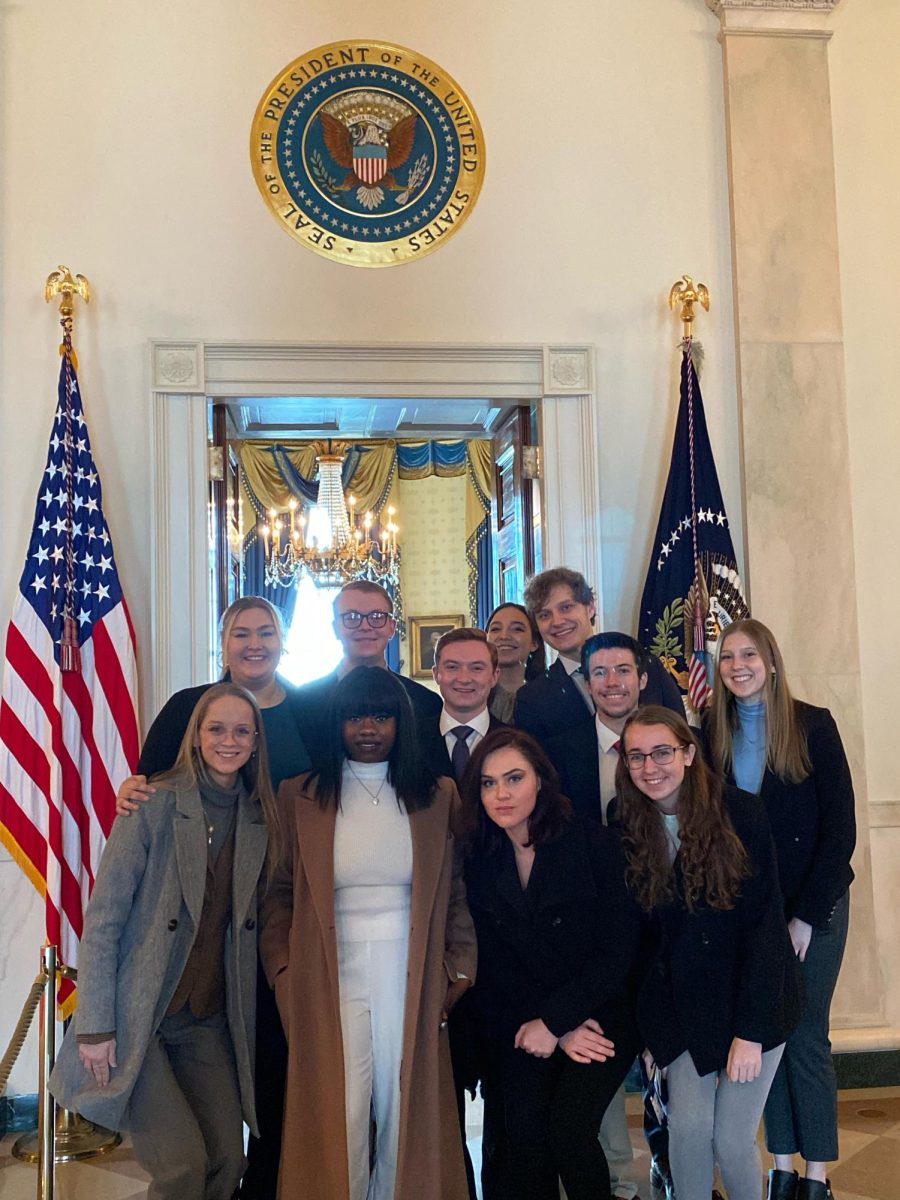ONLINE EXCLUSIVE COLUMN BY JOHN WINGERT
Donald Trump has already demonstrated his populist tendencies with repeated actions that fall into that ideology, but recent developments have caused critics on both sides of the aisle to call him the dreaded f-word: fascist.
Many people have criticized Donald Trump for tendencies they consider fascistic. On the Democratic side, Martin O’Malley, former governor of Maryland, has said, “When he pushes things like registries and ID cards based on things like religion, I do believe that is the sort of appeal that historically has often preceded fascism.”
Many have harangued Trump’s refusal to distance himself from databasing and registering Muslims as a policy proposition. It has drawn many to compare it to actions the Nazis took in their preparations for the Holocaust when Jews had special identification as well.
Even those in the Republican race have criticized Trump’s positions heavily. On Twitter, one of Jeb Bush’s campaign advisors, John Noonan, has said, “Forced federal registration of US citizens, based on religious identity, is fascism. Period. Nothing else to call it.”
Steve Deace, a pro-life activist and Ted Cruz endorser, has said, “If Obama proposed the same religion registry as Trump every conservative in the country would call it what it is — creeping fascism.” Steve Deace will also visit Drake University this Saturday in Meredith 101 to talk to Drake University Students For Life.
Obviously, Donald Trump has some unique positions, but are they fascistic? What exactly qualifies as fascism?
Auburn University and Dr. Paul M. Johnson assembled nine key features of fascism, the traditionally nationalistic ideology that is descended from regimes like Hitler’s in Germany, Mussolini’s in Italy and Franco’s in Spain.
The first feature is militant nationalism that proclaims some racial or cultural superiority. Many have argued that Trump’s comments about Latino immigrants, saying “they’re bringing drugs, they’re bringing crime, they’re rapists,” would qualify as racial denigration. Other remarks that show a distrust of Muslims and Arabs have also been described as racist.
The second feature is a single, charismatic leader said to be ideal in almost every respect but, most importantly, ideal in representing the national culture. Trump has certainly been known to flatter himself. “I had an article recently and it said great things about me it said, ‘Trump is really smart, really great,’ they actually used the word genius, but I won’t say that,” said Trump.
Trump also likes to repeatedly emphasize his poll advantage saying, “I’m number one; I’m killing everybody.” He also embodies the national character of capitalistic success by saying things like “I’m really rich” or “I’m much richer than almost anybody.”
The next criterion Dr. Johnson outlines is an emphasis on national unity and few checks on governmental overreach. Although Trump’s stance on this is less clear, he has repeatedly claimed that he will restore the federal government and remove the “losers” that burden it. He also seems to want to markedly expand its power by ignoring international agreements, surveilling mosques and private citizens and denying 14th amendment citizenship to children of immigrants.
Fascism is also generally associated with vehement anti-communist rhetoric or fear of communist influence. When talking about Senator Bernie Sanders, a democratic socialist, “this maniac,” Trump said, “was giving everything away.” Trump describes Sanders as a “socialist-slash-communist.” He is also firmly opposed to his campaign. Donald Trump has said, “He’s gonna tax you people at 90 percent; he’s gonna take everything!”
The fifth characteristic entails the fascist leader seeking to diminish ideologies that stray from national unity. The case could certainly be made that attempts to deport 11 million undocumented immigrants and thousands of refugees would reduce racial and ethnic diversity in the United States. It might also create a more homogenous national identity.
Fascist leaders also tend to glorify physical strength and loyalty to the personality of the leader. Trump has consistently criticized those he considers “losers.” He once criticized O’Malley, because he “apologized like a little baby, like a disgusting, little, weak, pathetic baby.”
These regimes also tend to utilize propaganda. Certainly, Trump has been caught in numerous fabrications (like claiming thousands of Muslims were cheering in New Jersey when the Twin Towers fell), but without a state-run apparatus in his control, it is difficult to say that he is promoting propaganda.
The eighth characteristic is a militaristic foreign policy. Trump has supported a build-up of the US military, saying, “We’re going to make our military so big and so strong and so great.” The purpose of this build-up is in his words is to “quickly and decisively bomb the hell out of ISIS.” Trump has also claimed, that he is “the most militaristic person you will ever meet.”
The final trait was regulation and control of the economy. Although Trump has explained his desire to deregulate and throw off burdens that keep out domestic manufacturing, he has also proposed severe limitations on other aspects of the economy. Specifically, Johnson looked at “price controls, which are designed to ensure the priority of the political leadership’s objectives over the private economic interests of the citizenry” and economics where “markets are allowed to operate only in a non-competitive, cartelized, and governmentally ‘rigged’ fashion.”
With regard to the controlling of prices, Trump has not declared his support for price controls on everything, but he does want to influence the price of goods with significant tariffs. When talking about Ford Motor Company’s new plant in Mexico, Trump has said, “every car, every truck and every part manufactured in this plant that comes across the border, we’re going to charge you a 35 percent tax — OK?” The goal of this is to control the company and bring their plant back to the United States. “Now, I guarantee you,” Trump said, “Let’s say I make this call at 9:00 in the morning, by 5:00 in the afternoon, I think the deal is done, they move back to the United States.”
Trump has also opposed the North American Free Trade Agreement and the Trans-Pacific Partnership, which would have allowed free trade. When questioned on this, Trump says that he does not want free trade; he wants “fair trade.” Instead of pursuing trade that benefits private economic interests, rightly or wrongly, Trump has espoused policies that would enable him to cajole private interests to his will.
This steering of the direction of corporations to do what he wants could fall under the “rigged market” label, where he determines the direction and winners in a given market.
That being said, fascism requires power as well. Donald Trump does not yet have that power. Some argue that Rubio and Cruz will fight between the establishment and anti-establishment wings, respectively, until one emerges as the nominee. However, it is important to remember that no one thought Trump could possibly last this long. After his comments about immigrants, people augured his downfall.
After all of these speculations, Trump continued to remain number one in all the polls. If this domination continues, the nomination will be his, especially considering that insurgent competitors like Fiorina and Carson have both gone downhill after repeated sparring with Trump. His loyal, unwavering base has remained more steadfast than anyone else’s, and they could lead Trump to the sort of fascistic victory that his competitors now fear.

